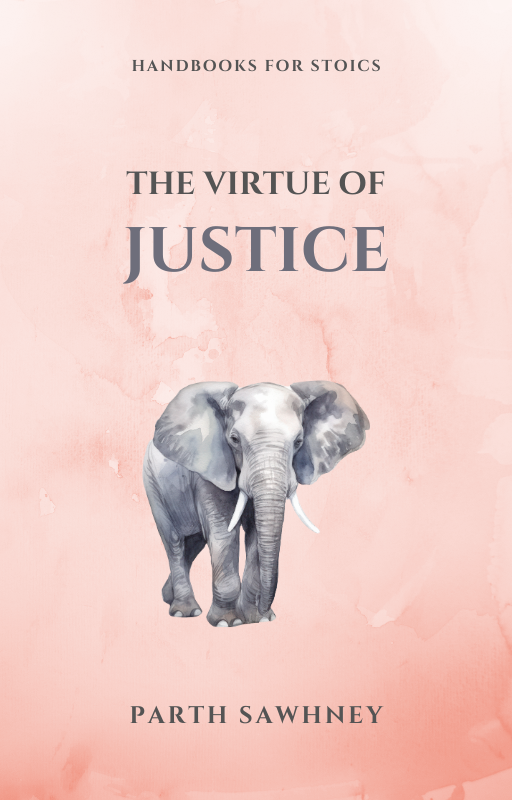the path to liberation: the quest for “what next?”

What is the fruit of these teachings? Only the most beautiful and proper harvest of the truly educated—tranquility, fearlessness, and freedom. We should not trust the masses who say only the free can be educated, but rather the lovers of wisdom who say that only the educated are free.
— Epictetus, Discourses, 2.1.21-23a
“Knowledge along with love, in the beginning, appears to bind you, but really it is setting you free. It is to free you from small things that it is binding.”
— Gurudev Sri Sri Ravi Shankar
In the journey of life, many strive for success, setting goals, and chasing dreams with relentless fervor. Achieving these goals often brings a sense of fulfillment, a momentary pause in the constant striving, and a realization of having "made it." Yet, in the quiet moments that follow, a question often surfaces: "What next?" This question, subtle yet profound, signals not just the end of one journey but the beginning of another, deeper quest—one towards freedom and liberation.
The emergence of this question—"What next?"—is a sign of life, a sign that you are still growing, still evolving. If this question no longer arises, it suggests that you have become complacent, settled into a state of spiritual or intellectual slumber. The absence of this inquiry indicates that the fire within, the drive for understanding and enlightenment, has dimmed. However, when this question does appear, it marks the beginning of a new path—a path towards self-knowledge, the ultimate key to true liberation.
Throughout history, humanity has sought wisdom from the ancients, turning to their teachings for guidance, comfort, and inspiration. Among these, the Stoic texts stand out, offering timeless truths about human nature, our relationship with the divine, and the principles of a well-lived life. These teachings do not merely serve as philosophical musings; they provide practical tools to help us live more freely, fear less, and achieve a state of inner peace.
The Stoics understood that the pursuit of knowledge, especially self-knowledge, is the cornerstone of freedom. By filling our minds with the profound words of these great thinkers, we engage in a practice that nurtures the soul, relaxes the mind, and cultivates a deeper sense of purpose. This process is not merely an intellectual exercise but a spiritual one, guiding us towards a higher understanding of ourselves and our place in the world.
To be truly effective in any sphere of life, whether in personal relationships, professional endeavors, or spiritual quests, we must cultivate emotional control and serenity of mind. The Quakers beautifully describe this state as "peace at the center"—an inner calmness that allows us to navigate external pressures without being overwhelmed. This peace is not a passive state but an active, dynamic condition that requires deliberate cultivation. It requires us to immerse ourselves in the teachings of the ancient philosophers, to reflect on their wisdom, and to apply their insights to our daily lives. By doing so, we build a strong foundation for maintaining balance and clarity, even in the face of life's inevitable challenges.
In today's fast-paced world, it is all too easy to prioritize entertainment or engage in meaningless activities over reading and studying philosophy. Yet, it is precisely through education—through reading and meditating on the wisdom of legendary minds—that we find the key to freedom. Philosophy offers us not just a way to understand the world but a means to navigate it with grace, resilience, and purpose.
The pursuit of knowledge is an ongoing journey, one that requires dedication and a willingness to confront difficult truths. It is a journey that begins with the simple yet profound question: "What next?" This question, when embraced, leads us down the path towards liberation, towards a life of greater freedom, deeper understanding, and ultimate peace.
And so, the question of "What next?" is not a sign of dissatisfaction but a signal of life and growth. It is an invitation to embark on a new journey, one that leads to the light of knowledge and the freedom that comes with it. By turning to the wisdom of the ancients, cultivating emotional control, and prioritizing education, we can achieve a state of liberation that transcends the mere achievement of worldly goals. This is the true essence of a life well-lived—a life guided by the principles of knowledge, serenity, and freedom.
New Release: "The Virtue of Justice" by Parth Sawhney
Volume 3 in the "Handbooks for Stoics" series

Unlock the transformative power of justice in this compelling addition to the "Handbooks for Stoics" series. Parth Sawhney delves deep into the Stoic virtue of justice, revealing how it can guide us toward right action and fortify our moral compass.
In "The Virtue of Justice," readers will discover:
- How to cultivate a robust conscience through Stoic principles
- Practical techniques for discerning and taking right action in challenging situations
- Methods to strengthen moral resolve and ethical decision-making
- The role of justice in personal growth and societal progress
Sawhney offers a blend of ancient wisdom and modern application, providing readers with:
- Thought-provoking exercises to train and sharpen moral intuition
- Real-world scenarios that test and reinforce ethical reasoning
- Strategies to align daily choices with Stoic ideals of justice
Whether you're a longtime Stoic practitioner or new to the philosophy, this handbook serves as an invaluable guide to living a more principled life. Learn how embracing justice can lead to inner peace, stronger relationships, and a more equitable world.
Embark on this enlightening journey with Sawhney and discover how to forge an unshakeable ethical foundation in an often-challenging world.


